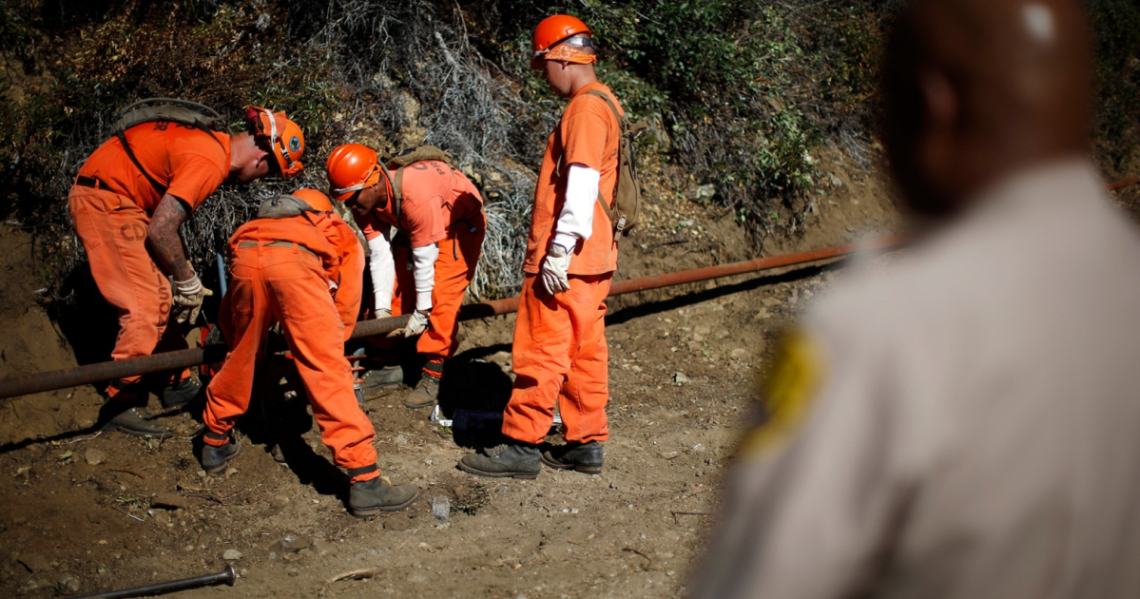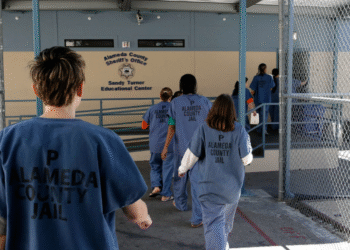Every morning, tens of thousands of incarcerated individuals in California prisons must work a job they did not necessarily choose. They cook and serve meals. They keep the facilities clean. They collect, wash and distribute laundry.
If prisoners decide to stop reporting to their assigned jobs, or if they attempt to prioritize educational or rehabilitative programs during their mandated work hours, they won’t simply risk losing the job — they face disciplinary infractions. For lifers, a writeup documenting refusal to work spells almost certain doom toward hopes of parole.
“If you don’t go to work, we’re gonna punish you – and they do,” said J Vasquez, a former prisoner who is now an activist with Communities United for Restorative Youth Justice. “I remember the first time I saw a man cry, like he broke down because he had just lost his mother. And he was still forced to go to work under threat of punishment. It’s like the guy can’t even take a day off or a couple of days to grieve.
“These are the type of things that really undermine people’s healing, undermine rehabilitation — and really, it doesn’t make much sense, right?”
California voters are now deciding whether to ban those compulsory assignments for people in jail or in prison. Proposition 6 would change the state constitution to repeal a provision that has allowed forced labor as a form of criminal punishment since the state’s founding.
California lawmakers placed the measure on the ballot with nearly unanimous votes, and passionate activists are campaigning for the initiative around the state.
But it’s far from certain that the measure will become law. Limited…
Read the full article here







